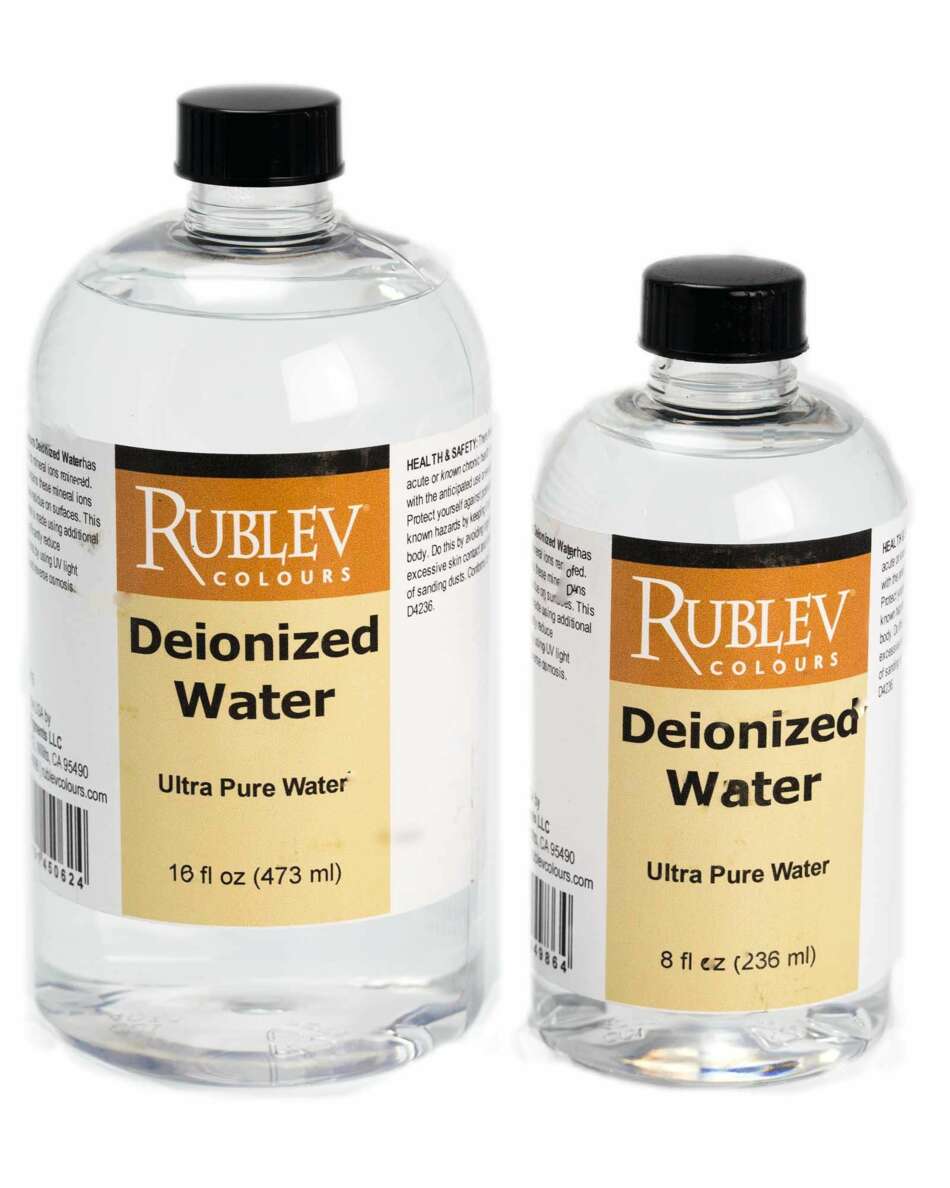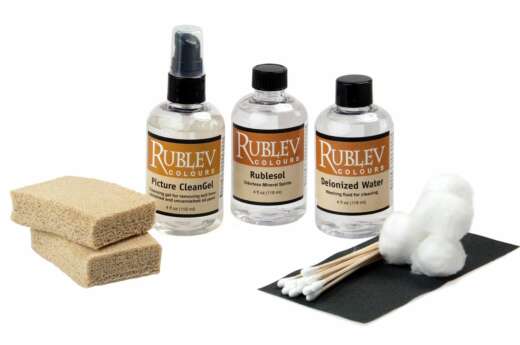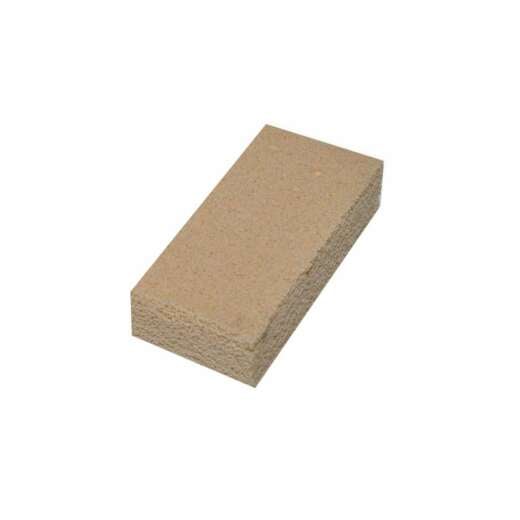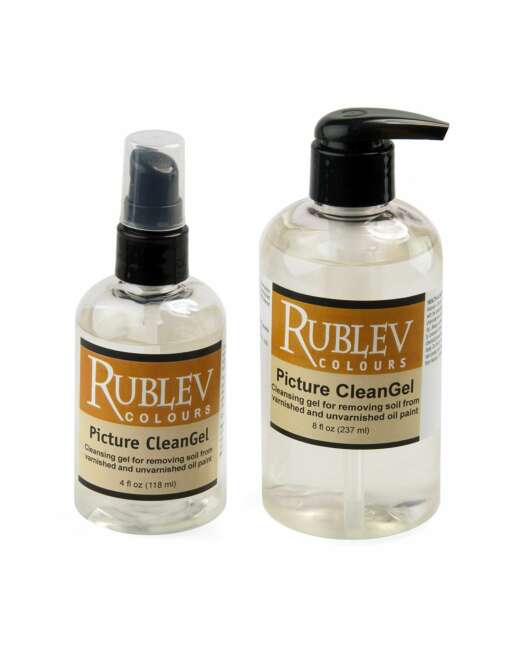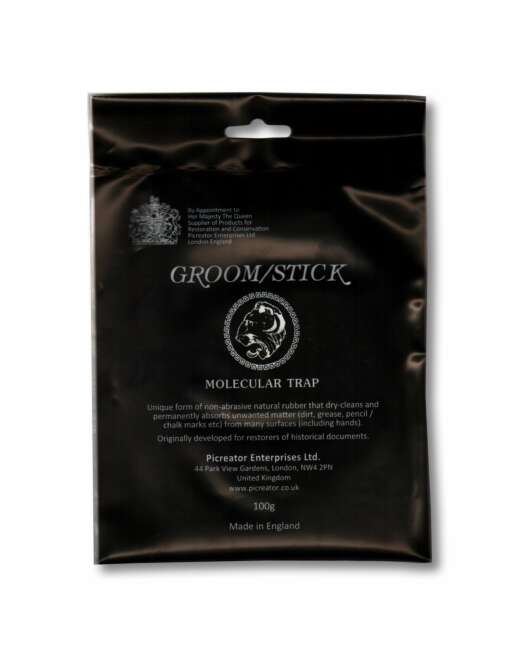Deionized Water
Deionized water (or demineralized water) is water that has had almost all of its mineral ions removed. Tap water contains these mineral ions that can interfere with processes, such as cleaning paint surfaces, or leave residues on surfaces. Deionized water by Rublev Colours is made using additional steps to significantly reduce Gram-negative bacteria and most virus by processing with UV light purification and reverse osmosis filters.
Deionized water (DI water, DIW or de-ionized water), often synonymous with demineralized water, is water that has had almost all of its mineral ions removed, such as cations like sodium, calcium, iron, and copper, and anions such as chloride and sulfate. Tap water contains these mineral ions that can interfere with processes, such as cleaning paint surfaces, or leave residues on surfaces. Deionization is a chemical process that uses specially manufactured ion-exchange resins, which exchange hydrogen and hydroxide ions for dissolved minerals, and then recombine to form water. Because most non-particulate water impurities are dissolved salts, deionization produces highly pure water that is generally similar to distilled water, with the advantage that the process is quicker and does not build up scale.
Deionization does not significantly remove uncharged organic molecules, viruses or bacteria, except by incidental trapping in the resin. Specially made strong base anion resins can remove Gram-negative bacteria. Deionized water by Rublev Colours is made using additional steps to significantly reduce Gram-negative bacteria and most virus by processing with UV light purification and reverse osmosis filters.
Common Uses of Deionized Water
Deionized or distilled water is used to remove residue left behind by cleaning agents in painting conservation and cleaning of artwork.
Using deionized or distilled water in appliances that evaporate water, such as steam irons and humidifiers, can reduce the build-up of mineral scale, which shortens appliance life.
Purified water is used in freshwater and marine aquariums. Since it does not contain impurities such as copper and chlorine, it helps to keep fish free from diseases, and avoids the build-up of algae on aquarium plants due to its lack of phosphate and silicate. Deionized water should be re-mineralized before use in aquaria, since it lacks many macro- and micro-nutrients needed by plants and fish.
Deionized water is commonly used to top up the lead-acid batteries used in cars and trucks and for other applications. The presence of foreign ions commonly found in tap water drastically shortens the lifespan of a lead-acid battery. Deionized water is preferable to tap water for use in automotive cooling systems.
Deionized water is very often used as an ingredient in many cosmetics and pharmaceuticals, where it is sometimes referred to as "aqua" on product ingredient labels; see International Nomenclature of Cosmetic Ingredients.
Distilled water can be used in PC watercooling systems and Laser Marking Systems. The lack of impurity in the water means that the system stays clean and prevents a buildup of bacteria and algae. Also, the low conductance reduces the risk of electrical damage in the event of a leak.
When used as a rinse after washing cars, windows, and similar applications, purified water dries without leaving spots caused by dissolved solutes.
Distilled or purified water is used in humidors to prevent cigars from collecting bacteria, mold, and contaminants, as well as to prevent residue from forming on the humidifier material.
| SKU | 520-2DW |
|---|---|
| Brand | Rublev Colours |
| Vendor | Natural Pigments |
| Processing Time | Usually ships the next business day. |


